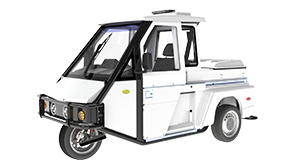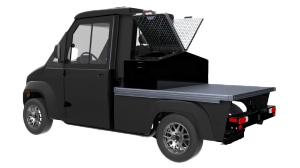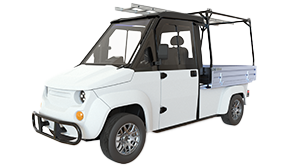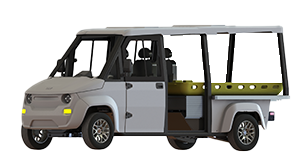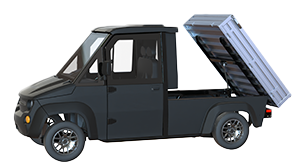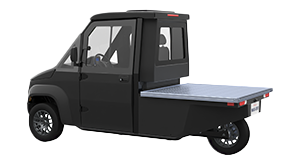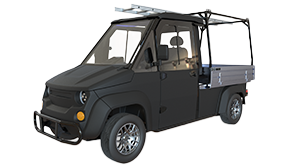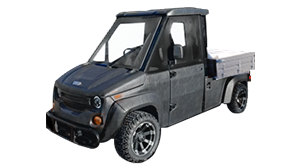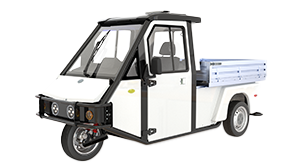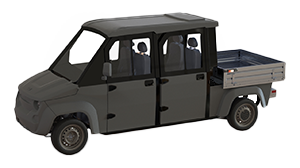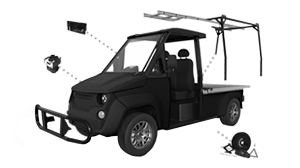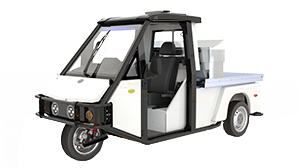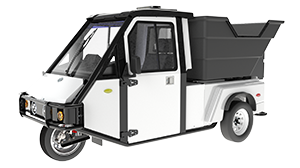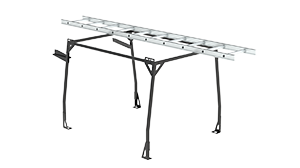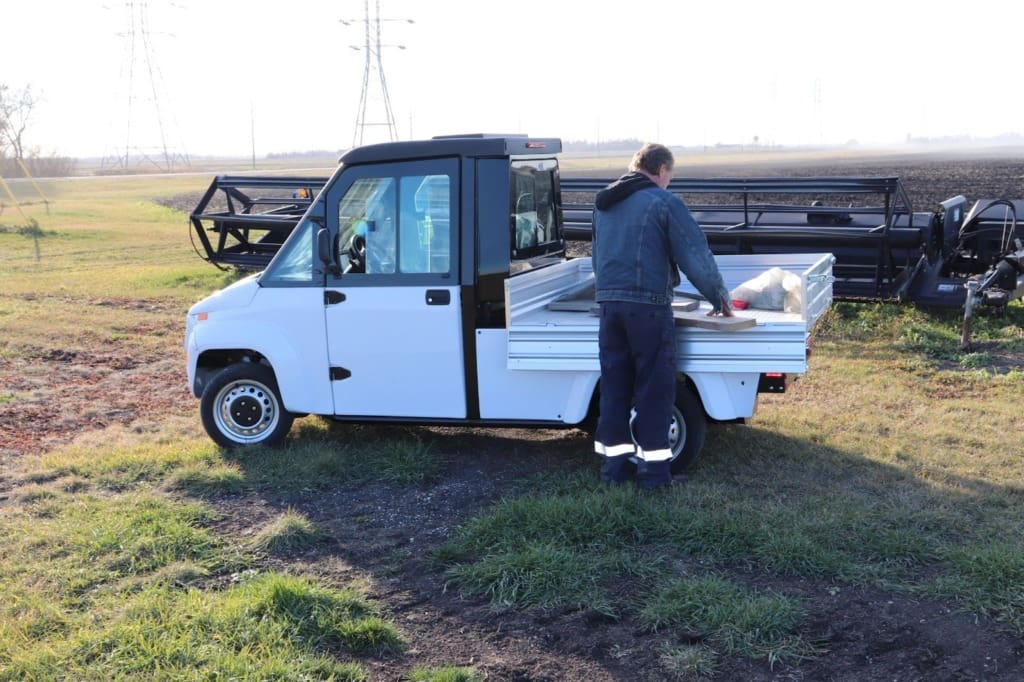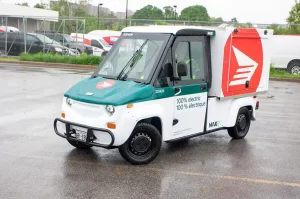Electric Power in the Fields: A New Era for Agriculture
The shift toward electric power is reshaping industries across the globe, and agriculture is no exception. Farmers are increasingly recognizing the benefits of electric farm utility vehicles, which offer a sustainable alternative to traditional gas or diesel powered equipment. This change goes beyond environmental impact; it represents a technological evolution that enhances efficiency and lowers operational costs.
Electric vehicles are transforming how farms manage everyday tasks like transporting crops, materials, and equipment. By eliminating the reliance on diesel and gasoline, farmers can reduce fuel costs while lowering their carbon footprint. However, the benefits are more extensive than fuel savings alone. See our online fuel savings calculator https://westwardindustries.com/electric-vehicles/
Electric farm vehicles are designed to provide the same durability and performance as their gas-powered counterparts but with the added advantage of quiet, clean, and energy-efficient operation. This shift towards electrification in agriculture is not just about compliance with environmental regulations; it is about rethinking how farms operate in a more sustainable and cost-effective manner.
Sustainability at the Core: Reducing Agricultural Emissions
Agriculture is a major contributor to greenhouse gas emissions, but electric farm utility vehicles are helping to change that by significantly reducing the environmental impact of farm operations. By replacing traditional diesel or gasoline-powered equipment with electric vehicles, farmers are contributing to cleaner air, healthier ecosystems, and a more sustainable future.
Lowering Carbon Footprints
Electric farm vehicles, such as Westward’s MAX-EV, are designed to eliminate reliance on fossil fuels. This means no tailpipe emissions, reducing carbon dioxide and other harmful gases that contribute to climate change. Key benefits include:
- Reduced greenhouse gas emissions, helping farms meet sustainability goals.
- Elimination of fuel-related pollution, improving air quality around the farm.
Energy-Efficient Design
Electric vehicles are not just cleaner—they’re also more efficient. Westward’s electric utility vehicles are powered by lithium-ion batteries and advanced PMAC motors, which deliver consistent power while using less energy. These components are designed to operate for long hours with minimal energy consumption, making them perfect for the rigorous demands of daily farm work. This combination of reduced emissions and energy efficiency allows farmers to operate sustainably without sacrificing performance.
Boosting Farm Efficiency with Electric Vehicles
Electric farm utility vehicles are not only more sustainable, but they also provide a clear boost in farm productivity. With their advanced technology, these vehicles reduce downtime, streamline operations, and make day-to-day tasks more efficient. Farmers are quickly realizing that the switch to electric is not just an environmental choice—it’s an operational upgrade.
Reduced Refueling Time
One of the most immediate benefits of electric vehicles is the elimination of time spent refueling. Traditional farm equipment relies on diesel or gasoline, requiring frequent stops for refueling. Westward’s electric vehicles, equipped with long-lasting lithium-ion batteries, significantly reduce these interruptions. With the ability to charge between tasks or overnight, electric vehicles allow farmers to keep their operations running smoothly without the hassle of frequent fuel stops. Opportunity charging does not adversely affect Westward batteries, simply allow some time over a weekend to allow the batteries to balance post charge.
Maximizing Uptime
Another often overlooked advantage is the role of remote diagnostics in minimizing downtime. Westward’s electric maintenance vehicles feature integrated remote diagnostic capabilities, enabling farmers to quickly identify and resolve technical issues. This reduces the time vehicles spend out of commission, ensuring that farm operations remain productive. The ability to address issues remotely means fewer disruptions and more time spent on the field getting work done.
Durability for Tough Farm Conditions
Farming demands rugged, reliable equipment that can withstand harsh environments and constant use. One of the main concerns when adopting electric farm vehicles is whether they can handle the same tough conditions as traditional equipment. Westward’s electric utility vehicles are engineered with durability in mind, making them well-suited for even the most demanding agricultural tasks.
Rugged Construction
Westward’s electric vehicles, like the MAX-EV, feature a 2.5-inch tubular steel chassis, which ensures maximum durability in rough terrains and harsh weather conditions. Each chassis is protected against corrosion with a zinc primer and heat-baked powder-coated paint finish.
This solid build allows the vehicle to endure the wear and tear associated with everyday farm use. Whether navigating uneven ground or carrying heavy loads, the rugged design keeps the vehicle operating smoothly in the most challenging conditions. The combination of high-quality materials and robust construction ensures that Westward’s vehicles last for years, even under constant strain.
Long-Term Reliability
Farmers rely on their equipment to get through long workdays, and frequent breakdowns can severely disrupt operations. Westward’s electric vehicles are designed for long-term reliability, with fewer moving parts and systems that experience less mechanical wear. This translates into fewer unexpected repairs and minimal downtime. The electric powertrain, combined with components like lithium-ion batteries and PMAC motors, delivers consistent performance over time, making Westward vehicles a dependable choice for farm operations. Farmers can trust that their electric vehicles will continue to perform reliably season after season, even in the toughest agricultural environments.
Versatile Tools for the Modern Farm
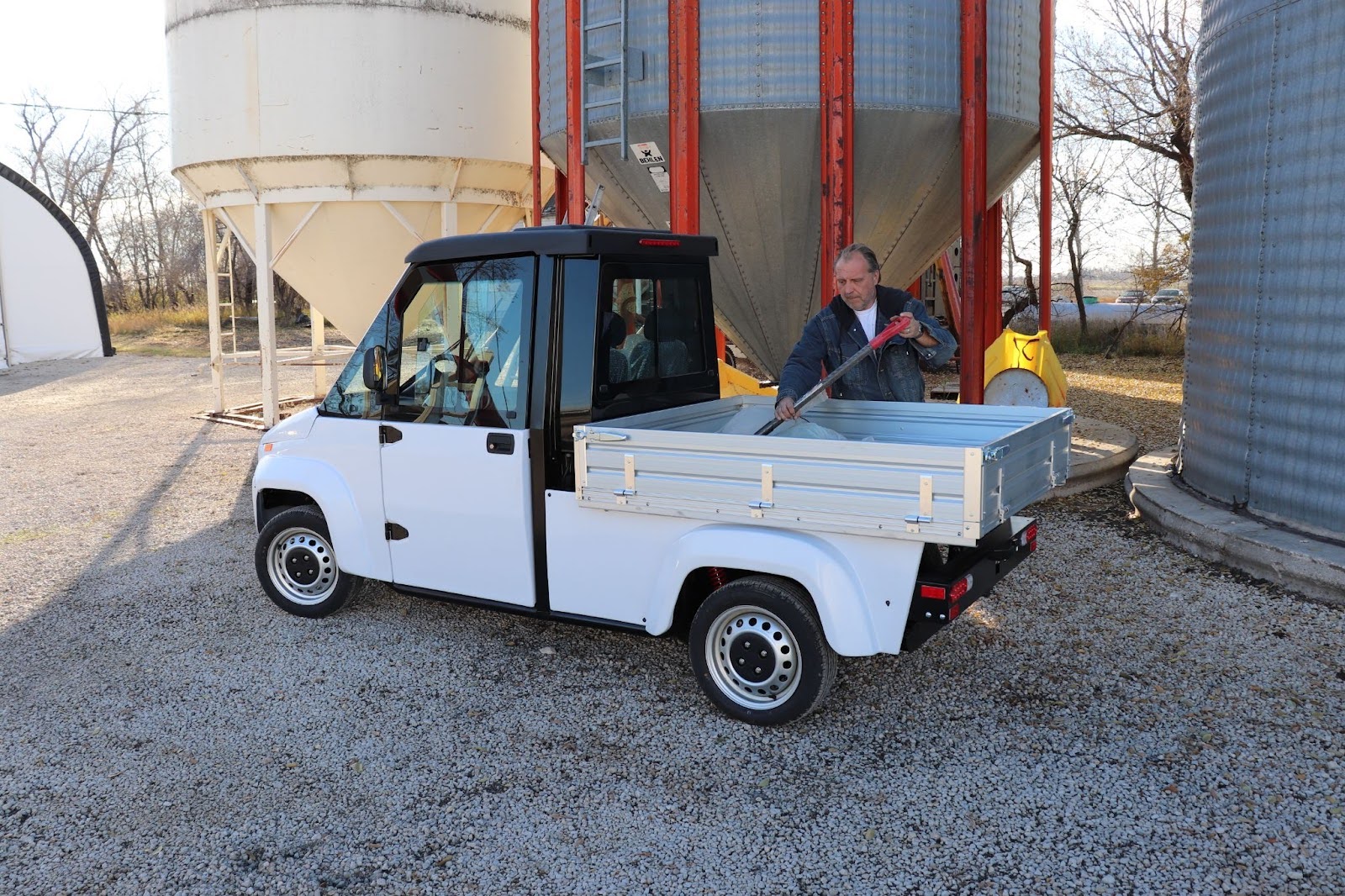
Electric farm vehicles from Westward are more than just a means of transportation; they offer multi-functional capabilities that meet the diverse demands of modern agriculture. From hauling crops to towing equipment, these vehicles can handle a wide range of tasks, making them invaluable tools for farms looking to improve efficiency while reducing their environmental footprint.
Multi-Purpose Capabilities
Westward’s electric vehicles are designed to support a variety of agricultural activities. With high payload capacities and customizable features, they can take on multiple roles, streamlining daily farm operations. Key capabilities include:
- Hauling crops: Large payload capacities allow these vehicles to transport harvested crops across the farm efficiently.
- Towing equipment: Equipped with tow hitches, Westward vehicles can pull farm equipment or trailers, adding to their versatility.
- Transporting materials: From soil to fertilizers, these vehicles are perfect for moving essential materials around the farm. Add a ladder rack for transporting longer equipment or for fastening work tools.
Customization Options
Westward’s electric vehicles also offer a range of customization options to suit specific farm needs. Whether it’s adding a tilting bed for easier unloading or fitting the vehicle with ladder racks and van bodies, farmers can adapt the vehicle for various tasks. Additionally, turf tires can be installed to ensure better traction on wet or uneven terrain, allowing for smooth operation in all conditions.
Westward’s electric vehicles are designed to become essential tools that handle diverse agricultural tasks with ease and efficiency.
Quiet, Clean, and Safe: Advantages of Electric Farm Vehicles
Electric farm vehicles offer unique advantages that go beyond sustainability and efficiency. These vehicles operate quietly, create no harmful emissions, and are designed with safety in mind, making them ideal for farms looking to improve working conditions and reduce their environmental impact.
Noise Reduction
One of the most immediate benefits of electric farm vehicles is their quiet operation. Traditional gas-powered vehicles generate significant noise, which can disturb livestock and nearby communities, particularly during early morning or late-night work. Westward’s electric vehicles run quietly, allowing farmers to operate without the risk of disrupting their environment. This is especially important for farms located near residential areas or sensitive ecosystems.
Safety in Operation
Westward’s electric vehicles are also designed with safety at the forefront. Features like high-visibility cabs and air-ride seats improve operator visibility and comfort, reducing the risk of accidents during long shifts. Additionally, the absence of harmful emissions ensures a cleaner, safer working environment for farmers, reducing exposure to exhaust fumes and contributing to better overall health on the farm.
Efficient Energy Management with Electric Vehicles
One of the key advantages of electric farm vehicles is their ability to optimize energy use, allowing farmers to complete more tasks with less power consumption. Westward’s electric vehicles are designed with energy efficiency in mind, ensuring that farm operations are not only productive but also sustainable. By using cutting-edge components like the PMAC motor and Curtis motor controller, these vehicles deliver exceptional performance without wasting energy.
Optimized Power Usage
The PMAC (Permanent Magnet AC) motor used in Westward’s vehicles is engineered for high efficiency, converting electrical energy into mechanical power with minimal losses. This means that farmers can expect long hours of continuous use while consuming less energy compared to traditional farm vehicles. The Curtis motor controller further enhances this efficiency by managing power distribution in real time, ensuring that the vehicle uses only the energy it needs to perform each task. This level of energy optimization is crucial for reducing overall electricity consumption on the farm.
Battery Life and Charging Options
Westward’s electric vehicles are equipped with lithium-ion batteries that provide long-lasting power for extended farm operations. Farmers have the flexibility to choose between Level 1 and Level 2 charging, depending on their needs and infrastructure. Level 1 charging is suitable for overnight recharges, while Level 2 offers faster turnaround, allowing vehicles to be back in operation quickly. This flexibility in charging ensures that farmers can maintain productivity without worrying about long downtimes. Simply plug any J1772 charger to our port and start charging.
Efficient energy management not only reduces operational costs but also aligns with the increasing demand for sustainability in modern agriculture.
A Greener Farm: Supporting Sustainable Agriculture Goals
Electric farm vehicles are a crucial part of the movement towards sustainable agriculture, providing an eco-friendly alternative to traditional gas-powered machinery. By integrating electric vehicles into farm operations, farmers can significantly reduce waste, emissions, and resource consumption, aligning their practices with broader sustainability goals. Westward’s electric utility vehicles are designed to help farms reduce their carbon footprint while maintaining high levels of productivity.
Sustainable Farming Practices
Electric vehicles help farms adopt more sustainable farming practices by reducing the reliance on fossil fuels and lowering greenhouse gas emissions. Key benefits include:
- Zero tailpipe emissions: Westward’s electric vehicles, like the MAX-EV, emit no harmful pollutants, contributing to cleaner air and a healthier environment.
- Reduced resource consumption: By eliminating the need for diesel or gasoline, electric vehicles minimize the extraction and use of non-renewable resources, reducing the overall environmental impact of farm operations.
- Promoting regenerative agriculture: Electric vehicles align with the principles of regenerative agriculture, where reducing inputs like fuel contributes to the overall health of the ecosystem.
Long-Term Environmental Benefits
The transition to electric farm vehicles offers long-term environmental benefits. Not only do they reduce a farm’s carbon footprint, but they also help preserve the soil and surrounding ecosystems by reducing exhaust fumes and oil leaks that can harm the land. Additionally, electric vehicles operate more quietly than traditional farm equipment, minimizing disruption to wildlife and nearby communities.
With electric vehicles, farms can move toward more sustainable practices, contributing to global efforts to reduce climate change impacts while enhancing overall farm efficiency.
The Future of Farming is Electric
As the agricultural industry faces increasing pressure to reduce emissions and adopt more sustainable practices, electric farm vehicles are emerging as the key to the future of farming. These vehicles offer both environmental and economic benefits, making them a smart choice for modern farms that want to stay competitive while embracing sustainability.
Innovating for the Future
Electric farm vehicles, like Westward’s MAX-EV, are leading the way in transforming agriculture. By offering durable, versatile, and efficient solutions, these vehicles help farms transition into a greener future without compromising productivity. The advancements in electric technology, such as long-lasting lithium-ion batteries and energy-efficient motors, ensure that these vehicles are not just a temporary trend but a long-term solution for sustainable farming.
Westward’s Commitment
Westward is dedicated to providing farmers with high-performance, reliable electric vehicles that meet the evolving needs of the industry. With a focus on sustainability, customization, and durability, Westward’s electric vehicles are positioned to help farmers thrive in an increasingly eco-conscious world, offering tools that support both immediate productivity and long-term environmental goals.
